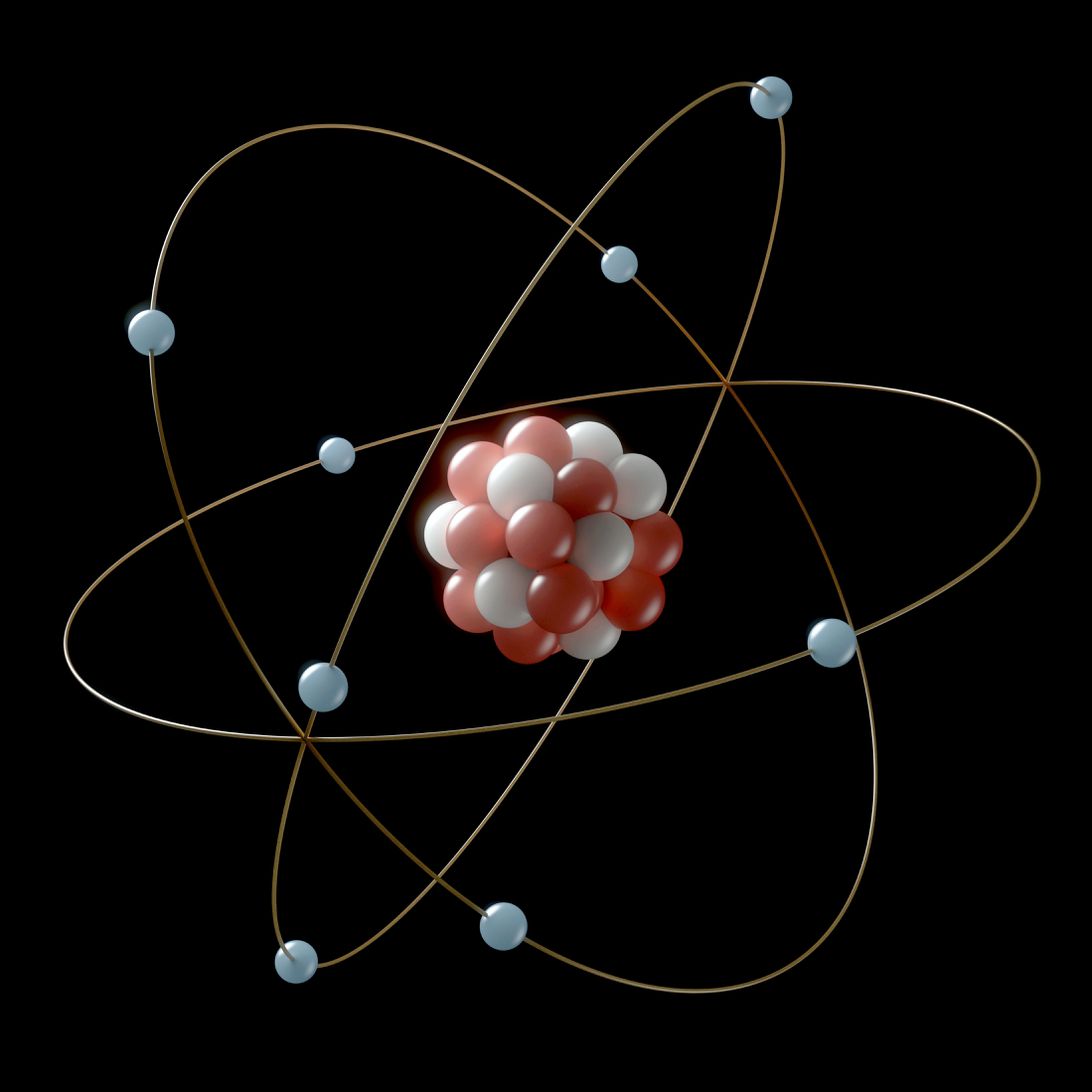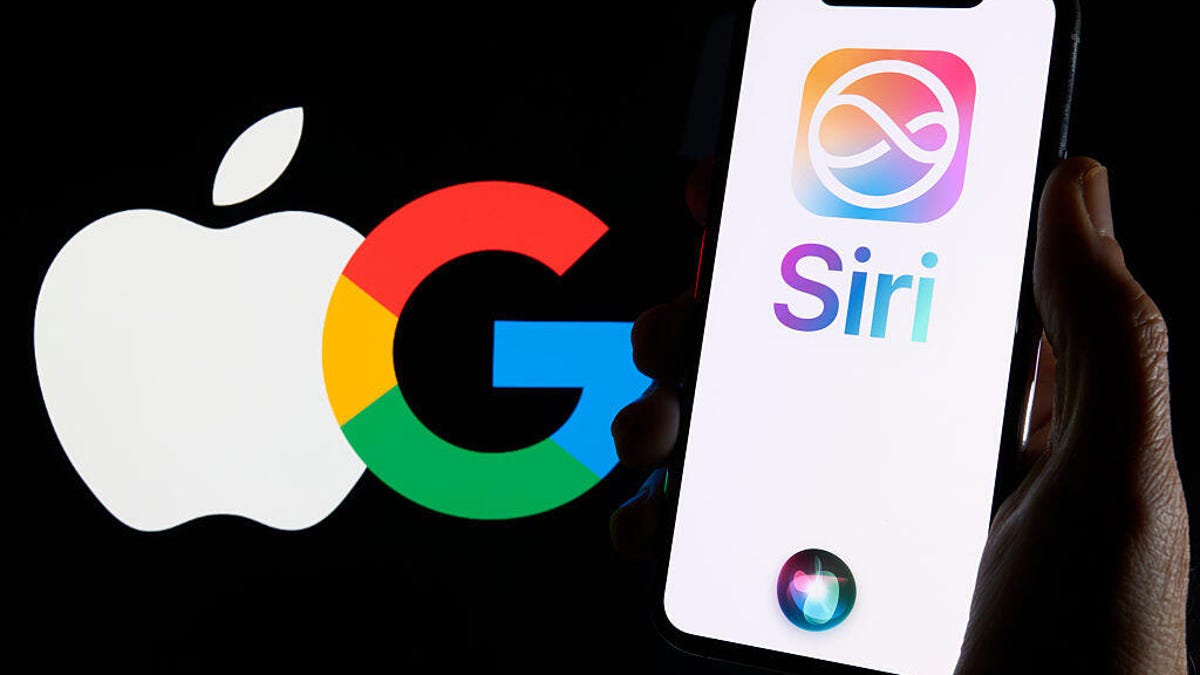Technologies
Our universe isn’t supposed to exist — but we’re slowly learning why it does
Scientists test the strange phenomena of antimatter, using a rather musical experiment.

You’re probably familiar with the following story: 13.8 billion years ago, the Big Bang led to stars and galaxies, which led to planets and life, and eventually, to you and me. But there’s a glaring gap in this chronicle, an aperture so big, solving it would shake our knowledge of reality.
«If we pluck, in principle, the best physics theories … we would need to conclude that the universe, as we observe it, cannot exist,» said Stefan Ulmer, a physicist at the RIKEN-led Baryon Antibaryon Symmetry Experiment at the European Council for Nuclear Research.
But… here we are playing Wordle and paying taxes, so either our laws of physics are wrong or we’re missing massive pieces of the metaphysical puzzle.
Among the army of scientists looking for those pieces, Ulmer has spent years studying the seed of our universe’s existential crisis: antimatter. In a paper published Wednesday in the journal Nature, he reports an update: Antimatter doesn’t react to gravity any differently than normal matter does.
Don’t worry if that last bit completely flew over your head, it’ll all come together.
First, what is antimatter?
Everything from the sun to the device you’re reading this article on is made up of the normal matter we know and love, composed of atoms built with positive protons and negative electrons. The Big Bang gave rise to all this matter, and the rest is literally history.
Here’s the weird part: Our universe also holds a tiny amount of antimatter, composed of atoms built with negative protons and positive electrons. It’s like the Big Bang’s rebel child.
These two also have a rift. When they come into contact, they totally annihilate one another because of their opposite charges. Even when scientists create antimatter for experiments, the zippy particles must remain in a vacuum because an antimatter particle in a normal matter environment would immediately go «poof.»
This incompatibility dominoes down to a huge existential problem – and it’s not just that we can’t meet our antimatter counterpart someday without basically exploding.
There should’ve been a particle war
Physicists use two main frameworks in explaining particle behavior: the Standard Model of particle physics and relativistic quantum field theory. Each is super solid in its own right, and combining them leads to a perplexing outcome.
Matter and its arch nemesis are two sides of the same coin.
«The architecture of space and time basically implies that matter and antimatter are, in principle, exactly symmetric,» Ulmer said, «which means they have the same masses, they have opposite charges, opposite magnetic moments and so on and so forth.»
If that’s true, the Big Bang should’ve had a 50/50 chance of forming either one. And had a 50/50 distribution happened, antimatter and matter should’ve completely destroyed one another. (Remember the rift?) With such a particle war, the universe wouldn’t have any matter. Space wouldn’t hold a sun or an Earth, and would surely lack humanity. Only a leftover sort of energy would’ve lingered after the battle.
But the sun, Earth and humans exist.
For some reason, the universe exhibits several orders of magnitude more matter than antimatter, a cosmic riddle known as baryon asymmetry, the namesake of Ulmer’s laboratory. Did Big Bang-generated antimatter vanish? Was there never any to begin with?
«We do not understand the origin of matter and antimatter asymmetry,» Ulmer simply puts it.
The part where it comes together
Because the Standard Model’s prediction of a 50/50 matter-type distribution relies on the particles being exactly symmetrical, the mystery may finally be solved if we find a way to breach the presumed parallel.
«If, let’s say, the proton would be a bit heavier than the antiproton, that would immediately explain why there is more matter than antimatter,» Ulmer said. That’d pretty much elucidate why the universe exists.
Let’s return to Ulmer’s study results: Both matter and antimatter respond to gravity the same way, ruling out some options on the ledger of possible symmetry violations.
Ta-da, told you it’d come together.
A proton symphony
Ulmer’s experiment began with a fascinating device called a Penning trap, a small metal contraption that detects a particle’s cyclotron frequency, or frequency at which something moves in a magnetic field.
The researchers placed a lab-produced antiproton inside and measured its cyclotron frequency, then popped in a negatively charged hydrogen ion and measured the same parameter. (Ulmer used a negatively charged hydrogen ion, or atom with one proton and two electrons, as a normal matter representative because it matched the antiproton’s negative charge).
It’s easiest to think of the experiment in terms of music.
The Penning trap’s pickup system, Ulmer says, is akin to what’s in an electric guitar. «It’s, in that sense, a very musical experiment,» he explained, being a guitar player himself.
«The frequency range is a bit different, but we are listening to the sound of what does not exist in the universe,» he added. «With our current ability to listen, [matter and antimatter] sound identical.»
The particles play the same melody, if you will, which also means they have the same music notes. Aka, these particles’ cyclotron frequencies were the same, as were many of their resulting properties, such as charge-to-mass ratio. All of these similarities are now eliminated from the list of possible matter-antimatter symmetry violations.
Space as a laboratory
But the researchers’ ultimate goal was to use their cyclotron frequency data and see whether the antimatter song changes alongside adjustments in a gravitational field. Specifically, they tested whether Einstein’s weak equivalence principle – true for normal matter – works on antimatter.
Einstein’s principle states that any object in a gravitational field behaves independently of its intrinsic properties. For instance, a piano and a feather would fall to Earth with the same acceleration in the absence of external forces such as wind.
Intuitively, we might assume antimatter’s opposite charges would force it to «fall up,» or at least have some variation in behavior.
For this facet of the experiment, Ulmer took advantage of some cosmic lab equipment: the Earth and sun. «As the Earth is orbiting around the sun in an elliptical orbit,» Ulmer said, «the gravitational potential in our laboratory changes as a function of time.»
So, he and his research team measured the cyclotron frequencies, aka the melodies, of both the antiproton and negative hydrogen ions at different points in time. After 24,000 comparisons, they concluded both particle types reacted the same – with very, very high certainty.
Voila, Einstein’s principle works on antimatter. It does not, in fact, fall upward.
«We’ll continue making the microscope better and better to be sure,» Ulmer said, and «if we find something unexpected in these experiments, this would change our fundamental understanding of the laws of nature.»
Philosophical consequences of antimatter
For argument’s sake, let’s suppose someone finally finds a discrepancy between antimatter and matter. What might that mean for us?
Violating matter-antimatter symmetry would mean violating a larger phenomena called CPT invariance. C stands for charge, P for parity and T for time. In a nutshell, the rule states if any of these things were reversed, the universe would fundamentally remain the same. If time went backward instead of forward, if everything was left handed instead of right handed and, you guessed it, if all matter had the opposite charge, the world wouldn’t change.
If we were to find antimatter isn’t the same as normal matter, C would be violated. And if CPT invariance is violated, then causality, scientists say, may no longer hold. «I think this would maybe lead to a more philosophical change in our thinking,» Ulmer said. «Comparable to what happened in the 1920s when quantum mechanics was developed.»
Adding, «up to that point, people were thinking that everything is deterministic. In quantum theory, things cannot be deterministic by definition anymore – so this changes how people are understanding themselves.»
Even more baffling is the realization that because the universe appears to exist, we sort of already know antimatter is up to something. In a sense, we already know we’ll have to adjust our perspective of reality.
We’re just waiting for the right moment.
Technologies
Pluto TV to Stream 49 ‘Survivor’ Seasons for Free
The 50th season of the competition series is set to air on CBS in February.

Pluto TV might help you plan your next reality TV binge. All 49 seasons of the competition series Survivor will stream on demand on the service later this month.
The Survivor catalog will arrive ahead of the landmark 50th season of Survivor, which airs on CBS on Feb. 25. You can currently watch the previous 49 seasons with a Paramount Plus subscription, which starts at $8 per month (or $9 after a price hike on Jan. 15). Pluto’s route is free, but it comes with ads.
There will be two ways to watch: Pluto’s dedicated 24/7 Survivor channel, which will stream episodes in chronological order, or you can stream episodes on demand.
The channel marathon and on-demand availability begin on Jan. 24 at 5:15 p.m. ET.
Don’t miss any of our unbiased tech content and lab-based reviews. Add CNET as a preferred Google source.
For more information on Pluto and other free, ad-supported streaming services, check out our roundup of the best options.
Technologies
Apple Picks Google Gemini to Power Siri
Sorry OpenAI, Apple went back to its old lover.

Apple has chosen Google’s Gemini to power its next iteration of Siri, coming later this year, both companies said in a joint statement on Monday.
Apple and Google’s Siri deal follows months of rumors saying that the iPhone maker had chosen Gemini to advance Siri over OpenAI’s ChatGPT. A report in November said that Apple would pay Google $1 billion per year for Google’s AI prowess. It helps that last November’s release of Gemini 3 made a huge impact and reportedly put OpenAI in a «code red» position.
«After careful evaluation, Apple determined that Google’s Al technology provides the most capable foundation for Apple Foundation Models and is excited about the innovative new experiences it will unlock for Apple users,» according to the statement on Monday. «Apple Intelligence will continue to run on Apple devices and Private Cloud Compute, while maintaining Apple’s industry-leading privacy standards.»
Google referred to the joint statement when asked for comment. Apple didn’t immediately respond to a request for comment.
Don’t miss any of our unbiased tech content and lab-based reviews. Add CNET as a preferred Google source.
Despite Apple being one of the most valuable companies in the world, it’s behind in the AI race. Instead of developing its own foundational models, which reports suggested hadn’t been going well, Apple instead worked with OpenAI to power Apple Intelligence. Even with the Siri refresh under Apple Intelligence, Apple’s AI assistant fell short of expectations, although subsequently it’s proving to be more useful.
Apple’s deal with Google further marries two American tech giants who had already been exchanging billions of dollars. During the Department of Justice antitrust trial against Google, court documents showed that Google paid Apple $20 billion in 2022 to ensure that Google Search would remain the default search engine across Apple devices. Now, some of that money will be flowing back to Google so that Siri can get a much-needed leveling up.
(Disclosure: Ziff Davis, CNET’s parent company, in April filed a lawsuit against OpenAI, alleging it infringed Ziff Davis copyrights in training and operating its AI systems.)
Technologies
Samsung’s Galaxy Z TriFold Is a Phone-Tablet Hybrid With a Clear Purpose
I got my hands on the new foldable at CES. It feels like a wildly practical two-in-one device, thanks to the massive display and overall sleek build.

I’ve tested my fair share of thin and foldable phones over the years, but something about Samsung’s Galaxy Z TriFold struck me as particularly unique when I held it for the first time at CES 2026 in Las Vegas.
At last, it seems foldables are approaching their long-desired goal: a two-in-one device that fits neatly in your pocket.
Don’t miss any of our unbiased tech content and lab-based reviews. Add CNET as a preferred Google source.
The Galaxy Z TriFold — which technically folds twice but has three panels — is like a true phone-tablet hybrid that stands apart from its bar-style counterparts. Its value lies less in flashy specs about its thinness and more in its utility and practicality.
Yes, the Galaxy Z TriFold feels impressively sleek when open: It’s just 3.9mm at its thinnest point and 4.2mm at its thickest, not accounting for the camera bump. It also feels wonderfully normal in my hands, to the degree that I didn’t really think about its weight of 309 grams as I used it.
Still, the foldable doesn’t inspire the same ergonomic awe as Samsung’s book-style Galaxy Z Fold 7 or the bar-style Galaxy S25 Edge, which primarily lean on an ultrathin, lightweight design.
The Galaxy Z TriFold is all about getting things done on a portable scale. Need to shoot off a quick text or check an email? The 6.5-inch cover display is similar to using a nonfolding phone — minus the slightly chunky 12.9mm thickness when the trifold is closed. And when it’s time to watch a movie, multitask or type up a paper, the expansive 10-inch internal display offers plenty of real estate.
Read more: The Samsung Galaxy Z TriFold was selected as a winner in the Best Mobile Tech category for the Official Best of CES 2026 Awards.
That duality makes the Galaxy Z TriFold work like a true hybrid device, filling a niche that book-style foldables have yet to satisfy, despite their numerous efforts.
Comparing the Z TriFold and the Z Fold 7 at a glance
Placing Samsung’s Z TriFold and its two-panel Galaxy Z Fold 7 side by side underscored just how different each phone is.
Yes, you can watch videos at a larger scale on the Z Fold 7’s inside display, but that experience pales in comparison to the true tablet-like feel of the unfurled Z TriFold. You can open up to three apps simultaneously on both phones, but doing so on the trifold feels like a less significant compromise thanks to its larger screen. And with Samsung DeX, turning your phone into a mini computer of sorts has never felt more practical, since there’s more room to work with.
One of the biggest indicators of how far foldables have come is the fact that both the Z TriFold and the Z Fold 7 pack pretty impressive cameras: a 200-megapixel wide, 12-megapixel ultrawide and 10-megapixel telephoto camera on the back, along with two 10-megapixel selfie cameras. So if you’re choosing between the larger and smaller Samsung foldables, that’s one key factor they have in common.
Two hinges on the trifold means double the screen creases, but they’re thankfully less visible than the Z Fold 7’s, which is already pretty subdued. Learning how to close the trifold correctly can be a bit of a learning curve, especially if you’re right-handed like me; you’ll need to close the left panel first. But each time you (I) mess up, the phone gives haptic feedback and an alert that you (we) are doing it wrong, which is helpful.
What’s perhaps most assuring is the trifold’s 5,600-mAh battery, which can hopefully allow the phone to power through a full day’s use, and then some. The Z Fold 7 has a 4,400-mAh battery, which lasted all day in my initial testing, but without much juice to spare. Hopefully, the Z TriFold remedies that. The trifold’s 45-watt super-fast charging is a nice perk, too.
Speaking of charging: Samsung told me the Z TriFold will come with not just a charging cable in the box, but also a charging brick. Nature is healing.
US release and price
The Z TriFold is already available in Korea, China, Taiwan, Singapore and the United Arab Emirates. In fact, my colleague Prakhar Khanna beat me to the punch and got his hands on the phone in Dubai last month.
Samsung has said the Z TriFold will launch in the US in the first quarter of this year. It’ll be interesting to see if people in the US respond similarly to those in other countries like Korea, where the phone reportedly sold out in minutes.
Another looming question remains: the price. Samsung didn’t share the US price at CES, but we’ll likely learn more as we approach the (also unknown) release date. Given the Z Fold 7’s $2,000 price tag, though, you might want to start saving up now.
-

 Technologies3 года ago
Technologies3 года agoTech Companies Need to Be Held Accountable for Security, Experts Say
-

 Technologies3 года ago
Technologies3 года agoBest Handheld Game Console in 2023
-

 Technologies3 года ago
Technologies3 года agoTighten Up Your VR Game With the Best Head Straps for Quest 2
-

 Technologies4 года ago
Technologies4 года agoBlack Friday 2021: The best deals on TVs, headphones, kitchenware, and more
-

 Technologies4 года ago
Technologies4 года agoGoogle to require vaccinations as Silicon Valley rethinks return-to-office policies
-

 Technologies4 года ago
Technologies4 года agoVerum, Wickr and Threema: next generation secured messengers
-

 Technologies4 года ago
Technologies4 года agoOlivia Harlan Dekker for Verum Messenger
-

 Technologies4 года ago
Technologies4 года agoiPhone 13 event: How to watch Apple’s big announcement tomorrow
